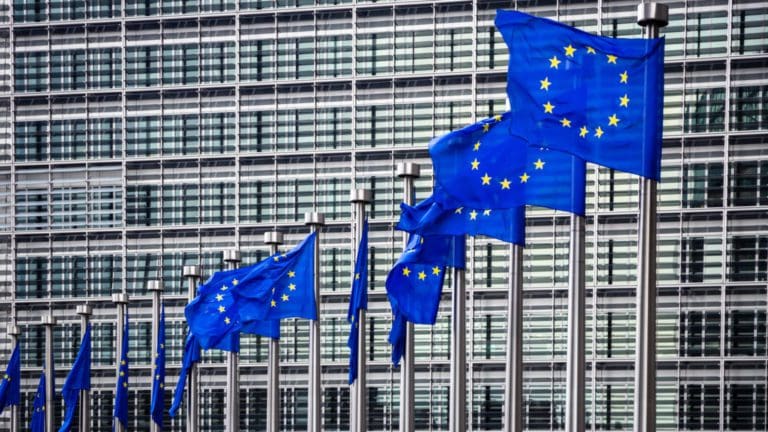Three weeks after the European Parliament elections, several previously unclear matters have become clear. Firstly, despite a significant strengthening of the continent’s right-wing parties, the EU’s top jobs are likely to be filled by members of the traditional ruling coalition: the European People’s Party (EPP), the Socialists and Democrats (S&D), and Renew. Secondly, it is increasingly evident that the grand right-wing coalition in the European Parliament, desired by many including Hungarian Prime Minister Viktor Orbán, will not become a reality. While this coalition may form on certain issues, a permanent alliance opposing the liberal mainstream will certainly not prevail in the European Parliament for the next five years.
In an interview given to Mandiner before the elections, Tamás Deutsch, the top candidate of the Hungarian governing party Fidesz, stated that after the June elections, Fidesz would join a political group in the European Parliament. Since 2021, Fidesz has been operating without a political group in the EP, having left the EPP due to the latter’s abandonment of right-wing politics and shift to the left in recent years.
ECR — Attractive, but Too Many Sacrifices
Following Deutsch’s statement—and way before that, actually—, speculations began regarding which European Parliament political group Fidesz would join. The European Conservatives and Reformists (ECR), founded by Italian Prime Minister Giorgia Meloni, were considered the most likely choice. Meloni maintains a very good relationship with Viktor Orbán, evidenced by the Hungarian PM’s visit to Rome on Monday. Additionally, Fidesz has many allies within the ECR, such as the Law and Justice (PiS) party of former Polish Prime Minister Mateusz Morawiecki. The ECR is undoubtedly the most influential right-wing political group in the European Parliament, boasting several prime ministers and holding the position of the third largest group after the elections with 83 seats.
Despite this, the chances of Fidesz joining the ECR were slim for several reasons. Firstly, the ECR takes a radically different stance on foreign policy issues, most notably Ukraine, unconditionally supporting the country at war, while Fidesz does not. Additionally, the ECR pursues a much more Atlanticist policy than Fidesz. Another critical factor was the revelation that the radically anti-Hungarian Alliance for the Union of Romanians (AUR) would become a member of the ECR, which is a red line for Fidesz. ‘We have made it clear that we follow national politics and
cannot be part of a political family that includes an anti-Hungarian Romanian party,’
Orbán underlined after talks with Meloni in Rome on Monday.
Contrary to the left-wing narrative, there is no suggestion that the ECR has rejected Fidesz’s application for membership. In fact, such a rejection is impossible because Fidesz had never applied for membership, as ECR co-chair Nicola Procaccini recently stated. Moreover, the ECR informally requires that parties wishing to join must sign a declaration of unconditional support for Ukraine in its war against Russia. Given the Hungarian government’s and Fidesz’s political stance, this requirement effectively rules out any possibility of accession.
The Sovereignists — AfD, as an Obstacle
Meanwhile, a new right-wing force is emerging in the European Parliament. Euractiv recently reported that the Alternative for Germany (AfD), which has been expelled from the Identity and Democracy (ID) political group, is working on creating a new EP group called The Sovereignists. According to a document seen by Euractiv, the quasi-founding meeting of this political group will take place on Thursday, 27 June, with around 100 invited guests. Potential members include the Bulgarian Vazrazhdane (Revival), the Spanish newcomer Se Acabó La Fiesta (The Party is Over; SALF), and the Hungarian far-right party Mi Hazánk (Our Homeland).
The name of the political group suggests that it may be close to Fidesz, but it is unlikely that the Hungarian governing party will join it, if it is formed at all. This is closely linked to why Fidesz is likely to join the Identity and Democracy (ID) group: the presence of the AfD. This may sound surprising at first, given that Fidesz and AfD have very similar ideological positions on key issues. However, the Hungarian governing party
has always been characterized more by pragmatism than ideology.
The Hungarian and German economies are particularly closely linked, especially in the automotive sector, as demonstrated by Viktor Orbán’s recent visit to Germany. During this visit, the Prime Minister emphasized that economic cooperation is the solid foundation of German–Hungarian relations. dditionally, German government parties and the traditional right-wing parties (CDU/CSU) have implemented a ‘firewall’ against the AfD. Regardless of the democratic nature of this stance, the fact of its existence cannot be disputed. Consequently, if Fidesz were to join a political group that includes the AfD, it is conceivable that retaliatory measures against the Hungarian economy could be introduced. Such a scenario is something a governing party prioritizing Hungary’s interests would not allow.
ID — The Best Choice?
In conclusion, the political group that Fidesz is most likely to join is Identity and Democracy (ID). With the AfD out, Marine Le Pen’s National Rally (RN) has emerged as the clear leader of ID, winning the EP elections so decisively that French President Emmanuel Macron immediately called for early elections. Opinion polls suggest that the French right will continue to dominate in the July elections, allowing Le Pen to consolidate her support not only on the European stage but also at home.
ID is ideologically much closer to Fidesz than, for example, the ECR.
They share similar views on the war in Ukraine, European relations with the United States, and the future of the European Union.
Additionally, Fidesz has many allies within ID, including Geert Wilders’ Party for Freedom (PVV) from the Netherlands, Matteo Salvini’s Italian League party, and the Austrian Freedom Party (ÖFP).
The Identity and Democracy (ID) group currently holds 58 seats, but with Fidesz joining, this number could increase to 69, significantly strengthening the position of the right-wing coalition in the European Parliament.
The European Parliament’s political groups have until 4 July to be unofficially formed, and until 15 July to formally negotiate and make alliances. After this period, we will be able to definitively determine which group the Hungarian governing party will join.
Related articles:







